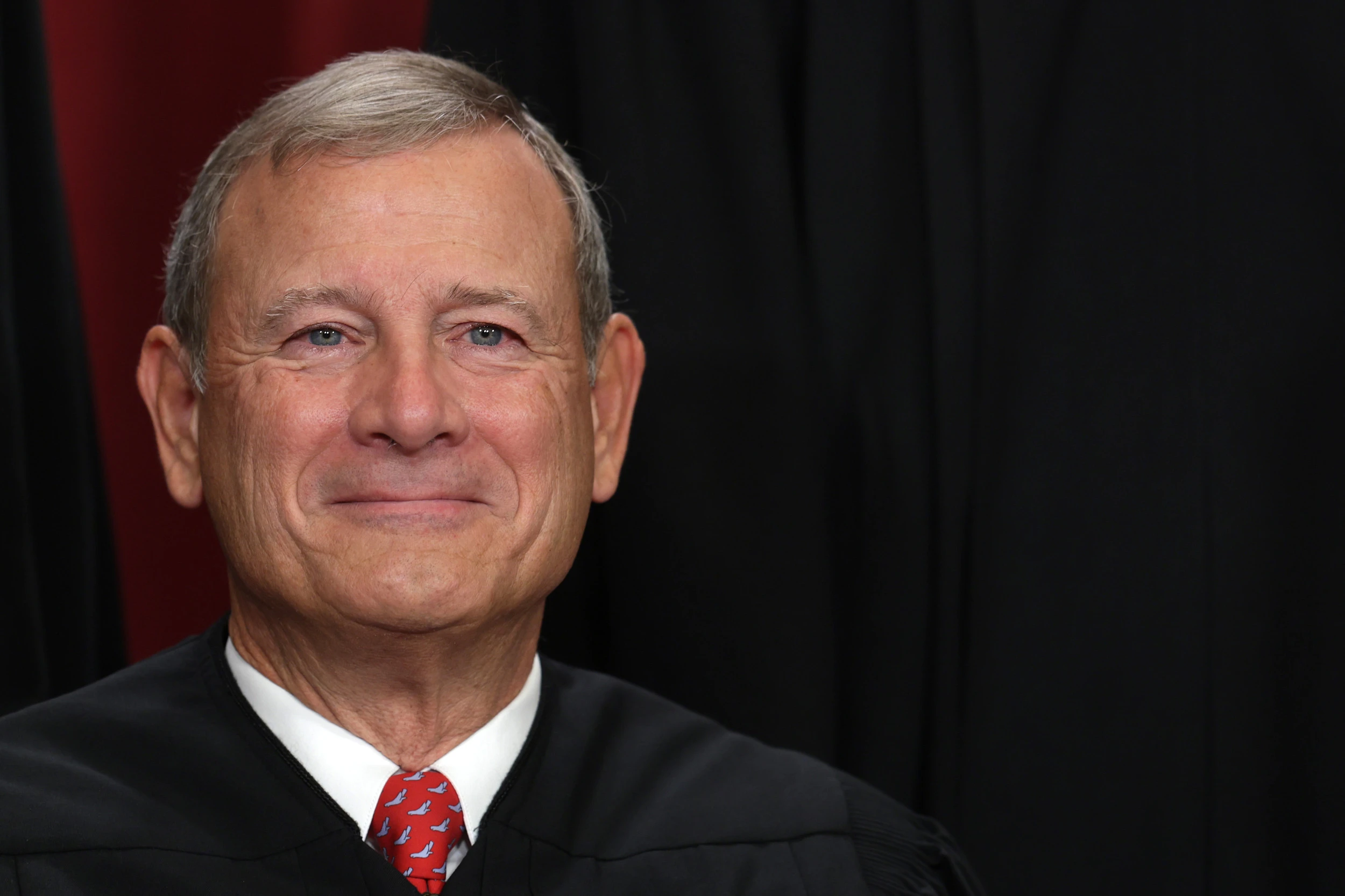Democratic Senator Dick Durbin called out the U.S. Supreme Court’s ethics problems to Chief Justice John Roberts’ face during Tuesday’s closed-door judicial conference.
Durbin, who sat next to Roberts, focused his remarks on the need for an enforceable code of conduct for the justices and expressed his disappointment in seeing the Supreme Court enmeshed in an ethical crisis of its own doing, a source familiar with the matter told Newsweek.
Although Durbin, of Illinois, did not specify which ethics concerns he was referring to, he stressed that the lack of rules governing the individual behavior of the justices was causing the decline in public support for the Supreme Court and urged Roberts to establish standards that could readily address the criticism the court has faced.
Several of the nine justices have become embroiled in controversies in recent years.
Justice Clarence Thomas was widely criticized after ProPublica reported that he had accepted luxury vacations from GOP megadonor Harlan Crow for years without disclosing them.
Justice Samuel Alito was revealed to have accepted a fishing trip to Alaska. Separately, Alito faced pushback for owning individual company stocks while ruling on cases that impact the same industries.
Justice Sonia Sotomayor reportedly directed her staff to prod libraries, schools and other public institutions to buy her books, which have earned her at least $3.7 million since she joined the court in 2009. She also failed to recuse herself from a case involving her publisher.
Amid the controversies, the Supreme Court’s approval rating has dropped to a record low. A Gallup poll conducted after the court’s 2022-2023 term found that only 40 percent of Americans approve of the Supreme Court, the same figure recorded in September 2021. From 2017 to mid-2021, the court’s approval rating had been 49 percent or higher. In 2009, 61 percent of Americans approved of the job the justices were doing.
Tuesday was not the first time Durbin has pushed for an enforceable code of conduct for the Supreme Court. As the chair of the Senate Judiciary Committee, Durbin advanced the Supreme Court Ethics, Recusal and Transparency Act in July, calling the bill “a crucial first step in restoring confidence in the court after a steady stream of reports of justices’ ethical failures have been released to the public.”
The legislation would give the court 180 days to adopt and establish a code of conduct and allow the public to submit ethics complaints for review, as well as outline disclosure rules for gifts and travel and impose recusal rules for potential conflicts. The committee voted along party lines, with all Republicans opposing the bill.
Thomas and Alito have been staunchly opposed to implementing an ethics code for the bench. Days after the Democrat-led bill passed a committee vote, Alito told the Wall Street Journal: “I know this is a controversial view, but I’m willing to say it. No provision in the Constitution gives them the authority to regulate the Supreme Court—period.”
But while some justices refuse to let Congress weigh in on their lack of enforceable code, Justice Brett Kavanaugh told a judicial conference last week that he hopes there will be concrete steps soon to address the ongoing ethics concerns that have smeared the court’s reputation. He also expressed optimism that the court could increase confidence among the American public by doing so.
“There’s a storm around us in the political world and the world at large in America,” Kavanaugh told judges, attorneys and other court personnel last Thursday. "We, as judges and the legal system, need to try to be a little more, I think, of the calm in the storm.
“My perspective is we’re nine public servants who are hard-working and care a lot about the court and care a lot about the judiciary as a whole.”
Roberts has also commented on the ethics debate, telling the American Law Institute in May: "I want to assure people that I’m committed to making certain that we as a court adhere to the highest standards of conduct.
“We are continuing to look at things we can do to give practical effect to that commitment. And I am confident that there are ways to do that consistent with our status as an independent branch of government and the Constitution’s separation of powers.”
Although Roberts is the leader of the federal judiciary, he has no power to force his colleagues to recuse themselves in a case, but only to attempt to convince or persuade them.



deleted by creator